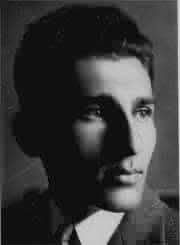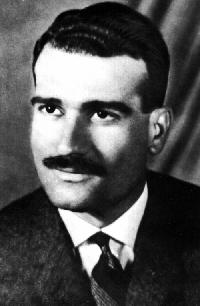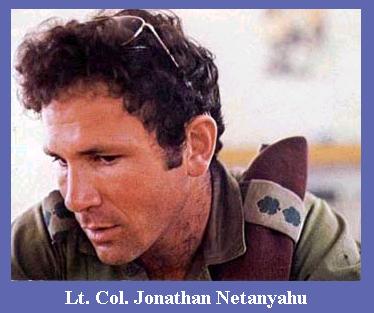Other sources:
http://www.kahanebooks.com/http://www.hameir.org/books/kahanebooks/The three most important books that a secular Jew should have read are


 I have a "Uncomfortable Questions" and Ben Hecht's "Perfidy" in e-book form. PM me if you're interested and I'll post copies on the forum.
I have a "Uncomfortable Questions" and Ben Hecht's "Perfidy" in e-book form. PM me if you're interested and I'll post copies on the forum.A link to various Divrei Torah and miscellaneous writings:
http://www.geocities.com/nkmpa/Another one of my favorite sources of Kahanist writings:
http://www.rosenblit.com/Here's a taste of what awaits you:
http://www.geocities.com/nkmpa/iraq1.htmlOn Iraq and the Gulf Crisis Pt. 1 - Politics?
By Rabbi Meir Kahane | | September - October, 1990
Kahane Magazine |
In days gone by when Jews were the people of an Almighty in whom they truly believed; in years long since gone when Jews were tied to their Father in Heaven with an awe and love and spiritual intoxication that made Him a permanent part of every thought and deed and sinew, they understood and knew that all that occurs on earth is because of Him and tied to the deeds of Israel. That reward and punishment are not things for esoteric afternoons when a lesson in Ethics of the Fathers is given to an entertained Sabbath audience or for the 15 minutes set aside in the yeshiva for mediation in a Mussar Sefer, to be admired and mused over in theory, distinct theory.
In times of yore when Jews truly believed that the Almighty rules and directs the world and punishes for sins; in generations of true piety when people knew that they did indeed sin and wept and anguished over it, in fear that there would be punishment for those sins - any threat and danger that would arise for the Jew led, instinctively, naturally, automatically, to the raising of one's eyes to Heaven and both a search for Jewish sins that might be the cause of the danger as well as a plea to the Almighty to have mercy on His people Israel, to forgive them and help them deal with their enemies and the dangers they posed.
In eras when Jews were truly religious, as opposed to practitioners of ritual and comfortable denizens of comfortable
mitzvot, they felt G-d, they touched Him and were constantly touched by Him. They loved Him as a real being and they feared Him because He was so real. In times when the Jew knew that G-d had made him and not that Man had thought Him, the Jew knew that no one hurt his finger in this world unless it was ordained from above. How much more so was it axiomatic that great events in the world, wars and threats and dangers and clashes between nations, were part of G-d's design and plan.
And so, quite naturally, every time that danger and suffering loomed, the Jew turned, not to the political commentator and political science professor, and not to analysts and "experts", but to the source of what will be - His Father in Heaven. For the Jew of authenticity, and before the humiliation of Torah by Jews corrupted and spiritually assimilated by an exile into which they entered before it entered them, there was never any such concept as "politics". There was no separation of one part of life from another part. The Jew knew that life was created by G-d, given to us by G-d, commanded to us by G-d, and that that life was a unitary, indivisible unit governed by Torah laws that covered every aspect and every centimeter.
Life for the Jew was an
"orach chayim", a way of life, a
total way of life. It never even entered his mind that life was made up of separate "religious" and "secular" areas. To speak of "politics" was a totally foreign thing to a Jew who never heard of and never would have accepted the pernicious, gentilized and Hellenized concept of "separation of church and state." Such were the days of old, when
chassidim rishonim, the pious of former times, would sit a full hour before praying, to contemplate and immerse themselves in the awe and joy of entering the presence of a Divine and real G-d.
Alas, for that which once was and is gone...
There is no clearer proof of the perversion of Torah in our times than the glaring separation of Torah and "politics", both among the Jews of non-observance as well as those who are pious practitioners of Jewish ritual. The former, of course, for whom G-d is, at best, a socio-cultural concept with little if any relevance to reality and the affairs of this world, private or public, not surprisingly never bring G-d into a discussion of "politics". To them, events of the world, what will be, are matters to be decided and discussed in political, economic, social and military terms. For them, Man is the great and ultimate decider of destiny, with G-d having a most limited place in the world, one that does not impinge on the important areas of Man's life.
As for the practitioner of Jewish ritual, it would appear that this is not so. On the surface, to such a Jew, the Almighty plays a most relevant role that fills much of his life. But, again, only on the surface. While ritual fills a very great part of the life of the Jew of ritual, whole areas of that life are compartmentalized, with two very broad categories emerging, i.e. "religious" and "secular" affairs.
And as part of the latter, the "secular" part of life, one finds an extraordinary amount of vital areas of human existence, not the least of which is the area known as "politics". Thus, one hears over and over again the concept of "we don't allow politics in the synagogue", in reference to a "controversial" speaker. But worse, far worse, is the rise of a phenomenon that sees events of monumental importance such as Israel, the Arab issue, the Territories and Jew-hatred in exile, become "politics", hence outside the realm of real Torah life, as opposed to "authentic" Torah issues such as the
"eruv", glatt kosher, and the size of the
"etrog".We have before us, once again, the pernicious results of a
"galut", an exile, that has warped, perverted and twisted the original concept of Torah. What we see daily is the separation of Torah and state, Torah and "politics", Torah and "secular world".
That is perversion.Torah Judaism, as given by the Almighty at Sinai, was a Judaism that set down a cardinal rule: The Almighty, G-d of Israel, is King of kings, who created a world with paths and laws and commandments that cover every single aspect of life. History exists only within the context of His will and direction. There is no separation of any area of life from that. There is no Jewish concept of separation of religion and "politics". There is no such thing in Judaism as "politics". There are laws of government as set down in the Talmud and codified by the Rambam. There are the laws of war. There are laws of faith. There are the laws of the gentiles. There are countless Torah laws that deal with what the Jew of ritual and gentilization - the Jew of
"shatnez" - today dubs "politics".
JEWISH STRENGTH,
JEWISH PRIDE!








